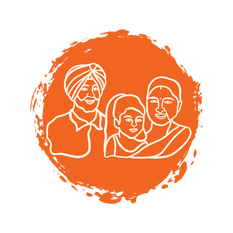Session I: 22 Years Since Inception, Is Dasra Surviving or Thriving?
|
|
Key takeaways:
|
Session II: Dare to Lead: Empowering Local Women Leaders For Inclusive Cities
|
|
Key takeaways:
|
Session III: Economic Recovery For Rural Women: Reimagining Sustainable Consumption
|
|
Key takeaways:
|
Session IV: Powering Through The Pandemic: Collective Action To Build Stronger Communities
|
|
Key takeaways:
|
Session V: Leaving No One Behind: Ensuring Inclusive Sanitation For Every City
|
|
Key takeaways:
|
Session VI: Empowering Communities Through Data: Reimagining The Future Of India
|
|
Key takeaways:
|
Session VII: Building Philanthropic Infrastructure: A Clarion Call For India To Step Up
|
|
Key takeaways:
|
Session VIII: Giving With And For Youth: Exploring Participatory Approaches To Philanthropy
|
Key takeaways:
|
Session IX: Let’s Go Home: A Family For Every Child In India
|
Key takeaways:
|
Session X: Pay What It Takes For Impact - From Insights To Action
|
|
Key takeaways:
|
Session XI: Walking the Talk: Stories Of Collaboration For India’s Informal Workers
|
|
Key takeaways:
|
Session XII: Road To Resilience: From Breakdown To Breakthrough
|
|
Key takeaways:
|
Session XIII: Accelerating Large-Scale Social Transformation in Livelihoods
|
|
Key takeaways:
|
Session XIV: Prioritising Lives in Philanthropy
|
|
Key takeaways:
|
Session XV: Around the World In Intersectional Ways: Exploring Layers And Practice
|
|
Key takeaways:
|


